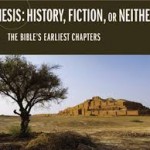 Stephen L. Young (ABD doctoral student, Brown University, Religions in the Ancient Mediterranean), recently published and article (the first of two) “exposing” inerrantist biblical scholarship: “Protective Strategies and the Prestige of the ‘Academic’: A Religious Studies and Practice Theory Redescription of Evangelical Inerrantist Scholarship.” (the entire article can be accessed here.)
Stephen L. Young (ABD doctoral student, Brown University, Religions in the Ancient Mediterranean), recently published and article (the first of two) “exposing” inerrantist biblical scholarship: “Protective Strategies and the Prestige of the ‘Academic’: A Religious Studies and Practice Theory Redescription of Evangelical Inerrantist Scholarship.” (the entire article can be accessed here.)
“Exposing” is my word, since Young does not employ that rhetoric. In fact, he is quite clinical and…well…scholarly about describing inerrantist scholarship “positively” (as in, assessing it academically) along sociological Study of Religions lines.
As a sociological analysis of evangelicalism, I would pair this article with Christian Smith’s more popular book The Bible Made Impossible: Why Biblicism Is Not a Truly Evangelical Reading of Scripture snd Kent Sparks’s God’s Word in Human Words: An Evangelical Appropriation of Critical Biblical Scholarship
, although Young’s article, being an article in an academic journal, is more focused.
Like Smith and Sparks, Young is deeply familiar with the world of inerrantist scholarship, and I have to say, I resonated strongly with this article, in that some of his observations are confirmed in my own experience.
Below is the abstract of the article (p. 1), to give you some ideas of where he is going (my emphasis).
This article examines how Evangelical Christian inerrantist scholars theorize their biblical scholarship and its relation to the broader academy, highlighting (1) their self-representation as true academics, and (2) the ways they modulate historical methods to prefer interpretive options that keep the Bible inerrant. Using these characteristics of inerrantist theorizing, the article redescribes their scholarship in terms of the religious studies rubrics of “protective strategies” and “privileging” insider claims. It then exploits this redescription to explore various characteristics of inerrantist religiosity from a Practice Theory vantage point, noting especially inerrantist religiosity’s highly intellectualized nature as well as features of its fields of discourse production and consumption, and their participants, that differentiate them from broader academic fields focused on the Bible. Overall the article thus provides a detailed positive account of inerrantist scholarship and introduces scholars to the utility of this data set for studying contemporary religiosity and religious “protectionism.”
Later (p. 4) Y0ung summarizes the heart of the article as follows (my emphasis):
I will identify two characteristic ways that producers of inerrantist discourse situate their products in relation to broader non-inerrantist scholarship: They energetically represent their work as sophisticated and superior academically legitimate scholarship, and they methodologically enshrine within their discourses a preference for interpretive options that uphold the Bible’s inerrancy. I then redescribe these characteristics of inerrantist discourse in terms of “protective strategies” and the privileging of insider claims, rubrics used more broadly by scholars of religion.
Here is a brief excerpt from pp. 9-10. I have found these observations to be particularly true (my emphasis):
Whether or not inerrantists consider a biblical writing to carry meanings beyond that of the original historical context, most insist on the inerrancy of the historical or original contextual meaning of biblical passages. Thus a proper method of interpreting the Bible and ascertaining its inerrant claims is historical study to determine biblical passages’ meanings in their original historical, linguistic, and literary contexts, often termed by inerrantists “grammatical-historical exegesis.” Inerrantists thus situate their projects within the arena of historical investigation. Accordingly, they commonly emphasize that proper academic-historical study of the Bible upholds inerrancy. Far from rejecting historical-criticism, inerrantists represent themselves as practicing true, honest, and legitimate historical scholarship . . . . Inerrantists theorize the legitimate historical-investigative nature of their work in a variety of interrelated ways. Of note, they commonly contrast (true) inerrantist historical scholarship with the (pseudo-) scholarship of non-inerrantists and, furthermore, often deploy the rhetoric of science, criticism, or the legitimate-academic in their representations of this contrast.
The opening quote might also shed some light on the vibe of the article (p. 2):
It seems to me that the resistance of many intellectuals to sociological analysis, which is always suspected of crude reductionism, and which is found particularly odious when applied to their own universe, is rooted in a sort of ill-placed (spiritualist) point of honor which impedes them from accepting the realist representation of human action which is the first condition for scientific knowledge of the social world. More precisely, it is grounded in an entirely inadequate idea of their own dignity as “subjects,” which makes them see scientific analysis of practices as an attack on their “freedom” or their “disinterestedness.” Pierre Bourdieu (Practical Reason: On the Theory of Action, viii-ix)
Young’s analysis does not reside on an abstract level. He cites chapter and verse from the works of a veritable who’s who of inerrantist biblical scholars. These include:
Gleason Archer, Richard Averbeck, G, K, Beale, Dan Block, Craig Blomberg, Darrell Bock, D. A. Carson, Paul Copan, Raymond Dillard, Richard Gaffin, Norman Geisler, Wayne Grudem, Carl F. H. Henry, James Hoffmeier, Walter Kaiser, John Oswalt, Vern Poythress, Richard Schultz, John Walton, E. J. Young.
Despite Young’s “Study of Religion” descriptive approach to his topic, I think it is safe to say–as might also be signaled by the above list of scholars–that his assessment of inerrantist scholarship as employing “protective strategies” and “privileging insider claims” will ruffle some feathers.
Yet still, the ball will be in their court to demonstrate why Young’s analysis is wrong without engaging in the very protective and self-affirming strategies Young details.
As I see it, the good news is that the scholarly world may be beginning to look more carefully at inerrantist biblical scholarship.
The bad news is that the scholarly world may be beginning to look more carefully at inerrantist biblical scholarship.











